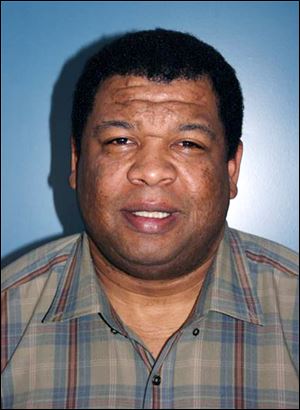
10 questions with Vince Marrow
7/3/2011
Vince Marrow
In three years, Vince Marrow has coached at all three levels of football. The former Springfield High School coach (2009) became a member of the University of Nebraska football staff earlier this year after coaching for a year in the United Football League. The 42-year-old Youngstown native, who played and coached at the University of Toledo, is looking forward to being a part of the Cornhuskers' first season as members of the Big Ten Conference. Marrow was a high school teammate of Cornhuskers head coach Bo Pelini.
What are your thoughts about joining Bo Pelini -- a fellow Ohioan -- at Nebraska?
"It's a great opportunity that I get to work with a childhood friend. I played high school ball with him, and it's a good opportunity to work with him and at a great place like Nebraska. We played at Cardinal Mooney together. I'm a year behind him, but we were the top two athletes at the time in the school. We've always been really close. I lived in the inner-city, and he lived in the suburbs. I knew he was a good guy probably during the first week of school."
Did you think you would ever coach together?
"We've always talked on a regular basis even when I was in the pros. It was the right time to come."
What do you think of Pelini as a coach?
"I've always told people I'm not surprised by his success. He has good morals. He's a strong Catholic. He runs a really tight ship. He's a guy who is -- what you see is what you get."
You've coached at all three levels (high school, college, pros) over the past three years, how do they compare with one another?
"At the high school level, you still have kids who have the dream and they want to listen and you may also have to deal with parents influences. At the college level, it's kind of similar, but there's a transition in college to becoming young men. At the professional level, it's strictly business. I know how to demonstrate and teach at every level. It's more of a credibility level [for coaches] at college and pros because [players] want to know if you can get them better."
What was your one year like serving as the football coach at Springfield?
"I think there were a lot of false misconceptions that I had a bad experience. As it turns out, it really was hard for me to leave. What made it hard for me to leave were the people in the community. There were a lot of people torn about me leaving. We were building something great there. I was actually blown away by the strong support I had there. We're still ingrained in this community, and that's why we've been back. We had the right things going, and we were on the right track. If it wasn't concerns for the levy -- I found out later I was going to be fine -- I might have still been there. I wouldn't have listened to other offers."
What did you learn from your experience as a high school head coach that you hadn't previously experienced as a coach at any other level of coaching?
"The X's and O's I already knew. You're being more the administrator, the head figure of the program and the community, I didn't [focus] on that before. It was more about making an impact in the school. You have to be more than a coach. I realized that was going to be a part of it, but you don't realize that impact."
You were the first African-American hired as a head coach for football or basketball in the Northern Lakes League and remained a presence around the school even after stepping down. What are your thoughts about former University of Toledo coach Stan Joplin coaching the Blue Devils basketball team?
"I think the hiring of Stan Joplin as the basketball coach is good for the community. I think Springfield is ahead of the other suburban communities in the area, and they should get power points for that. They have hired two African-American [head] coaches, and I think they haven't received the credit for what they are doing. They have the Rooney Rule in the NFL, I think this speaks volumes for Springfield. Just look around, and what other African-American coaches do you see in the city [City League] and the NLL? I give them credit for that. I think somebody there isn't just looking at color. They've wanted the best person for the position, who just happens to be African-American."
Do you think joining the Big Ten has affected football recruiting in any way for Nebraska?
"We still will get our share of kids from Texas and California, but it does change a little because we do recruit in Ohio. I think we have nine players from Ohio."
What are your thoughts about Nebraska playing in the Big Ten after being a key player in the Big 12 for so many years?
"I think we're looking forward to the challenge. It's a great opportunity to go into the Big Ten. It's a good opportunity for the university. I know the perception on our team is we're excited. As for being the new team on the block, we've got to be ready. Bo is a Midwest guy who played at Ohio State."
How are your son, Michael, a former Central Catholic standout, and Kevin Williams, a former Springfield standout, adjusting to being at Nebraska?
"Michael is already college-ready. He's a guy, because of his learning disability, who needed to go to a school with good, strong academic support like they had at Alabama and have at Nebraska. Kevin had a great spring. He had two sacks and two tackles for loss in the spring game. The coaches like him, and he's going to be fine."